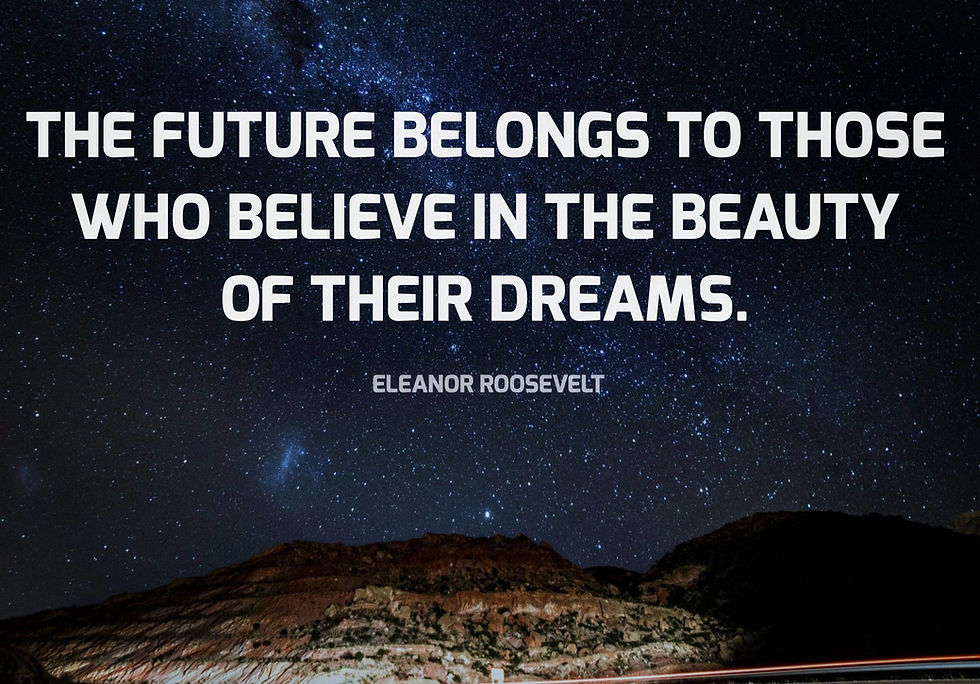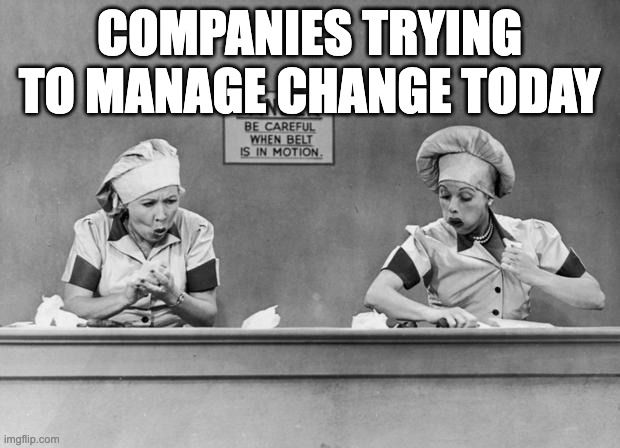Believe in the Future
- Rob Caldera
- Nov 20, 2018
- 3 min read

Much of what has been written about the future of work makes it sound like the changes being discussed are a foregone conclusion (e.g. A.I. will replace most jobs). The truth is we don’t know what the future of work will look like and we’re often bad at making predictions.
Nevertheless, it’s good that we (as a society) are writing and talking about the topic so much. Like speculative fiction that helped create the changes it predicted by serving as inspiration (e.g. the flip phones of Star Trek), so too can writings about the future of work. And as I mentioned in my previous post, the choice is ours. We can make the future of work what we want it to be and that starts by envisioning and exploring new and better scenarios through writings, videos, podcasts, etc.
What possibilities do I see? What do I believe the future of work should be?
For starters, a lot of great work has already been done reimagining what work can be. I agree wholeheartedly with manifestos such as that of The Responsive Org and Change Agents Worldwide (of which I’m a founding member) or belief statements such as this one by John Stepper, which kicked off the Working Out Loud movement.
The core tenets that drive my approach to the future of work share similar ideas and values as the pieces referenced above. These include:
Organizations must shift from command and control structures to those where all members are empowered to make a difference (e.g. self-management models).
Peer networks, not tribes, are the future.
Connectivity is the key: Augmenting the way people communicate and collaborate (inside organizations and with external partners, customers) is crucial to creating a fully connected, trusting, and engaging culture.
Change-readiness must be a core organizational attribute: To survive in today’s accelerated world, organizations must become more responsive and adaptive to their ever-changing environments (the first three tenets above can help develop this trait).
Think in terms of communities, not stakeholders. The latter you “talk at” (i.e. pitch a message or cater to their interests), meaning you deal with them at arm’s length. Communities, on the other hand, imply that everyone is in it together and that there is a shared level of trust. Taking a community approach can lead to unlikely partnerships and more opportunities to co-create, which is important because….
Collaboration beats competition: Overcoming the complex challenges of today’s environment requires a truly co-creative mindset. Going it alone, whether as an individual, a department, or a single player in a market, is a myopic approach sure to bring diminishing returns.
Embrace progress: Don’t fear change. Fear just leads to more dehumanizing work environments. Believe in the inevitable forward push of progress. Every advance in the human condition has come through change. It’s time for work to once again evolve.
Have a pioneering perspective: The future of work is a new frontier. While work has changed before, it’s only changed in form, not function. The seismic shifts (or “Megatrends”) that have only just begun to reshape society, will also force us to rethink the very concept of work. This is an opportunity we must take advantage of. We must all be pioneers and help shape that future together.
Through my work at Future|Shift Consulting, I hope to serve as a gateway to what can be – an exciting future of work that is decentralized, networked, collaborative, technology enhanced (not overrun), purpose-driven, personalized, fulfilling, but most of all more human.






Comments